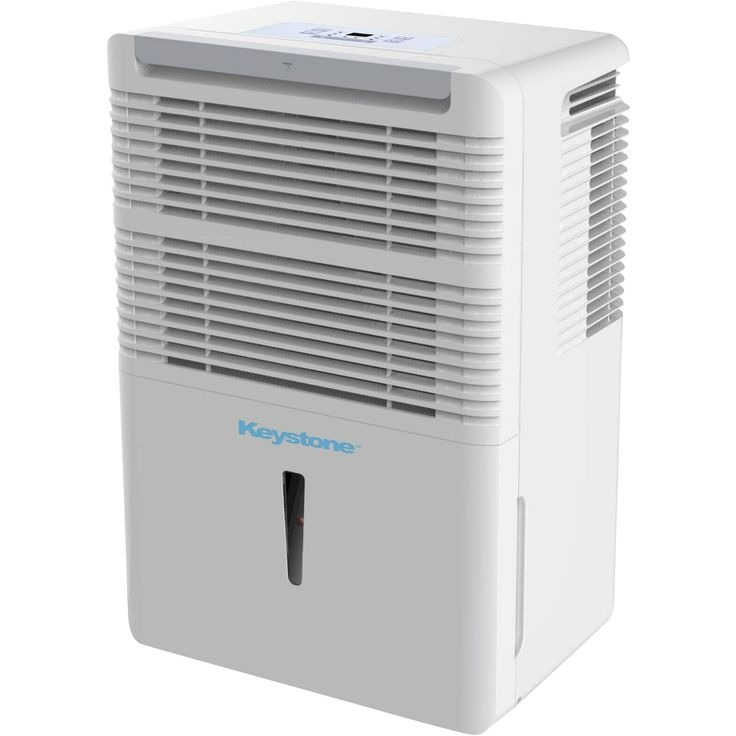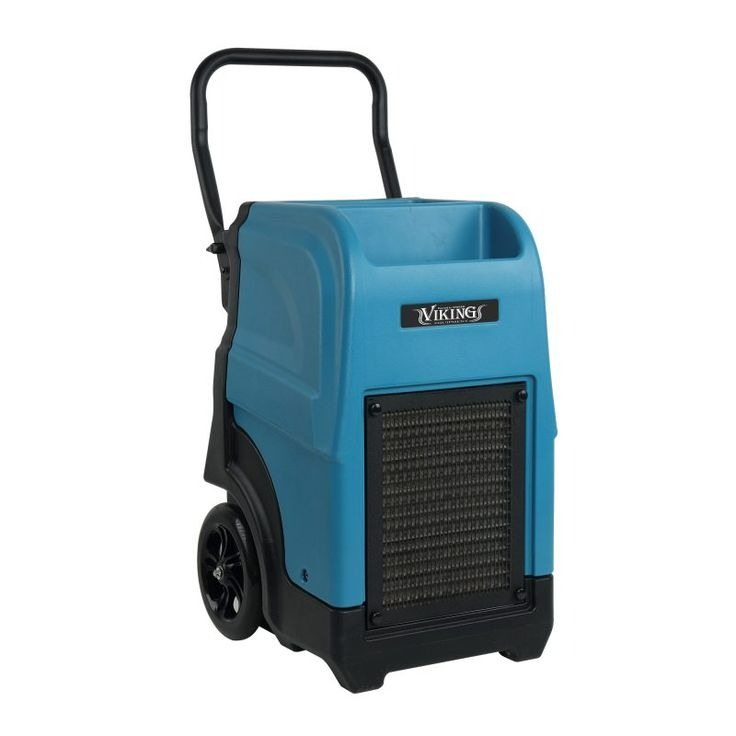Importance of Dehumidifying Your Basement
Ensuring your basement remains dry is important for several reasons. First, it protects the structural integrity of your home. Basements that stay damp can weaken building materials. Walls, floors, and support beams might rot or rust when exposed to continual moisture. Second, a dry basement prevents mold and mildew growth. These can lead to health issues, such as allergies and respiratory problems. Keeping humidity low is key to a healthier home environment.
A proper dehumidifier removes excess moisture efficiently. It can mitigate musty smells and reduce the possibility of pests that thrive in damp conditions, like termites and cockroaches. In addition, dehumidifiers play a role in preserving items stored in the basement. Papers, fabrics, and furniture are less likely to get damaged in a dry environment. Lastly, by controlling basement humidity, you may also save on energy costs. Humid air makes your heating and cooling systems work harder, increasing utility bills.
In summary, a best basement dehumidifier ensures your home’s health, protects its structure, and leads to possible savings. It’s an investment worth considering for every discerning homeowner.

Types of Dehumidifiers for Basements
Selecting the best basement dehumidifier involves understanding the types available. Here are the main ones:
Refrigerant (Compressor) Dehumidifiers
These are the most common in homes. They work by pulling air over cold coils, causing moisture to condense. The collected water drops into a tank or drains away. They handle high humidities well and are suitable for cooler basements.
Desiccant Dehumidifiers
Unlike refrigerant models, desiccant dehumidifiers use absorbent materials to capture moisture. They work effectively even at lower temperatures. Small, portable units are excellent for minor damp issues.
Thermo-Electric Dehumidifiers
Thermo-electric models use a Peltier heat pump to move moisture. They are quieter and often smaller. However, they might not be as powerful as compressor or desiccant types. These are ideal for maintaining low moisture levels in already dry basements.
Whole-House Dehumidifiers
These systems connect to your home’s HVAC. They dehumidify as they condition the air. They’re more expensive, but they work throughout the house. These are a great choice if you want to address humidity beyond the basement.
Understand your basement conditions and choose a dehumidifier type that aligns with your needs. Make sure the unit you pick can handle the size and humidity level of your space. Investing in the correct type can make all the difference in maintaining a dry and healthy basement environment.
Factors to Consider When Choosing a Basement Dehumidifier
Selecting the best basement dehumidifier requires careful thought. You need to consider several factors to find the right unit. Think about your basement’s size. A small device might not be effective in a large space. Look at the humidity level too. Some dehumidifiers work better in damp conditions. Energy consumption is crucial. Choose a unit that balances power and efficiency. Think about the noise level as well. A quiet dehumidifier is less disruptive. Check for a unit with a built-in hygrometer. This feature helps maintain the desired humidity level. Don’t forget about the drainage options. You can choose between a tank system or a continuous drain. Maintenance is important. Pick a dehumidifier that is easy to clean and care for. Lastly, consider your budget. Find a balance between cost and quality.
When looking for a dehumidifier, these are the key points to have in mind:
- Size of your basement: Ensure your dehumidifier can handle the area.
- Humidity levels: Some models perform best in very moist conditions.
- Energy efficiency: Opt for a dehumidifier that doesn’t hike up your energy bill.
- Noise: A quieter model will not interrupt daily activities.
- Hygrometer: This helps keep moisture levels in check.
- Drainage: Decide on either manual emptying or a hose for continuous draining.
- Maintenance: Easy-to-clean models save time and effort.
- Price: Weigh the performance against cost to get the best value.
Keep these factors in the forefront as you narrow down your options. A suitable dehumidifier enhances your basement and your home’s overall health.

Best Dehumidifier Features for Basement Use
When searching for the best basement dehumidifier, certain features can make a significant difference in performance and convenience. Here are key features to look for:
- Adjustable Humidistat: An adjustable humidistat allows you to set and maintain the desired humidity level. This feature ensures that the dehumidifier does not overwork, saving on energy costs.
- Automatic Shut-off: A dehumidifier with an automatic shut-off will turn off when the water tank is full. It prevents spills and potential damage to the unit.
- Continuous Drainage Option: Some dehumidifiers offer the choice of a continuous drain. This spares you from frequently emptying the water tank. Ensure that your basement setup can accommodate a drainage hose.
- Filter Indicator: A filter indicator tells you when it’s time to clean or replace the air filter. This keeps the dehumidifier running efficiently and prolongs its lifespan.
- Digital Display: A digital display makes it easy to monitor and adjust settings. This aids in maintaining optimal humidity levels without guesswork.
- Portability: If you need to move the dehumidifier around, consider a unit with caster wheels and handles.
- Frost Sensor: In cooler basements, a frost sensor can prevent coil freeze-ups. It allows the dehumidifier to work well even in cold conditions.
Finding a dehumidifier with these features will add to your convenience and ensure your basement remains dry and comfortable. Always match the feature set with your specific needs for the best outcomes.
Energy Efficiency and Cost-Effectiveness
When searching for the best basement dehumidifier, it is critical to weigh energy efficiency and cost-effectiveness. A dehumidifier that consumes less electricity can lead to substantial savings over time, as it will be running for several hours each day. Look for dehumidifiers with Energy Star ratings. These have been assessed for energy efficiency without sacrificing performance. An energy-efficient dehumidifier may have a higher upfront cost, but it can reduce your bills in the long run.
Another cost-effective feature to consider is the adjustable humidistat. This ensures the dehumidifier only runs when necessary, further saving on electricity costs. Some models also offer a timer function, so you can set them to operate during off-peak energy hours. Don’t overlook the unit’s capacity as well. A model that’s too small for your basement won’t effectively remove moisture, leading to continuous operation and higher costs. Conversely, a too-large unit might cycle off too frequently, which could also drive up energy usage.
In terms of cost-efficiency, consider the longevity of the dehumidifier. Investing in a quality brand that offers a longer warranty and greater durability might save you from future replacement costs. Regular maintenance can also prolong the life of your device, making it a more cost-effective choice over time.
By considering these energy-saving and cost-efficient features, you can ensure that you select the best basement dehumidifier that is gentle on your wallet and the environment.

Installation and Maintenance Tips for Basement Dehumidifiers
Once you select the best basement dehumidifier, proper installation and maintenance are key to its performance. Here are some tips to get the most out of your dehumidifier:
- Location is crucial: Place your dehumidifier in the center of the basement if possible. Avoid corners and ensure it’s away from walls and furniture for proper air circulation.
- Ensure proper clearance: Dehumidifiers need space to operate effectively. Leave at least 6 to 12 inches of space around the unit.
- Level the unit: Make sure that your dehumidifier sits level on the floor to function correctly and avoid unnecessary stress on internal components.
- Connect to a reliable power source: Use an outlet that can handle the power needs of the dehumidifier, and avoid using extension cords.
- Clean filters regularly: Check and clean the dehumidifier’s filter every two weeks to maintain air flow and efficiency.
- Empty water tanks timely: If your unit collects water in a tank, empty it regularly to prevent overflow and bacteria growth.
- Inspect the coils and sensors: Clean the coils and sensors once a year. Dust and grime can impact the unit’s performance over time.
- Listen for unusual noises: Any strange sounds could indicate a potential problem. If you hear anything unusual, consult the manual or a professional.
- Schedule routine check-ups: Even if everything seems fine, it’s good practice to have your dehumidifier checked by a professional annually.
- Consult the user manual: The user manual is your go-to resource for all specific maintenance tasks and troubleshooting.
Following these simple yet effective installation and maintenance steps can prolong your best basement dehumidifier’s lifespan and aid in keeping your basement dry and comfortable.
Top Rated Basement Dehumidifiers of 2025
In 2025, the market offers outstanding dehumidifiers tailored for basements. We’ve researched and found top-rated devices you can trust.
Here’s what stands out in the current lineup:
- High-Capacity Models: These dehumidifiers handle larger spaces efficiently. They keep extensive basements dry without constant supervision.
- Smart Technology: Integration with home automation systems is a plus. Users can monitor and control humidity levels remotely.
- Energy Star Certified: The best units come with this certification. They ensure energy savings while delivering optimal performance.
- Whisper-Quiet Operation: Quieter models enhance living conditions. They operate in the background without a loud noise.
- Warranty and Support: Leading brands offer substantial warranties. With reliable customer support, you’re secure in your investment.
- Advanced Filtration: These dehumidifiers also purify air. They capture allergens to improve the basement’s air quality.
The best basement dehumidifier for your home depends on specific needs. Look for a balance of features, efficiency, and performance in these 2025 models. Always consider reviews and reliability records before making your purchase.
Common Mistakes to Avoid in Basement Dehumidification
When it comes to keeping your basement dry, a proper dehumidifier is essential. However, there are common mistakes homeowners make that can hinder the effectiveness of these devices. Below are the pitfalls to avoid when using a dehumidifier in your basement.
- Ignoring Size and Capacity: One common error is choosing a dehumidifier that is too small for the area. This can lead to the device being overworked. Make sure the dehumidifier is the right fit for your basement size.
- Overlooking Humidity Levels: Not all dehumidifiers are equal in handling different humidity levels. Select one that matches the moisture level of your space.
- Neglecting Maintenance: Dehumidifiers need regular cleaning and upkeep. Dirty filters and coils reduce efficiency and can cause damage over time.
- Poor Placement: A dehumidifier works best in a central location with proper clearance around it. Avoid placing it in a corner or close to walls where airflow is restricted.
- Failing to Empty the Tank: If the model you choose has a water tank, it’s important to empty it before it gets full to prevent spills and bacteria growth.
- Skipping Continuous Drainage: Not using the continuous drainage option when available can lead to frequent tank emptying and possible water damage from spills.
- Unsuitable Power Source: Dehumidifiers must have a dedicated power outlet. Using an inadequate power source or extension cords can be unsafe.
- Disregarding Noise Levels: Loud dehumidifiers can be disruptive. Consider noise levels to ensure a quiet basement environment.
By steering clear of these common errors, you’ll maximize the performance of your best basement dehumidifier and maintain a healthier and more comfortable basement.